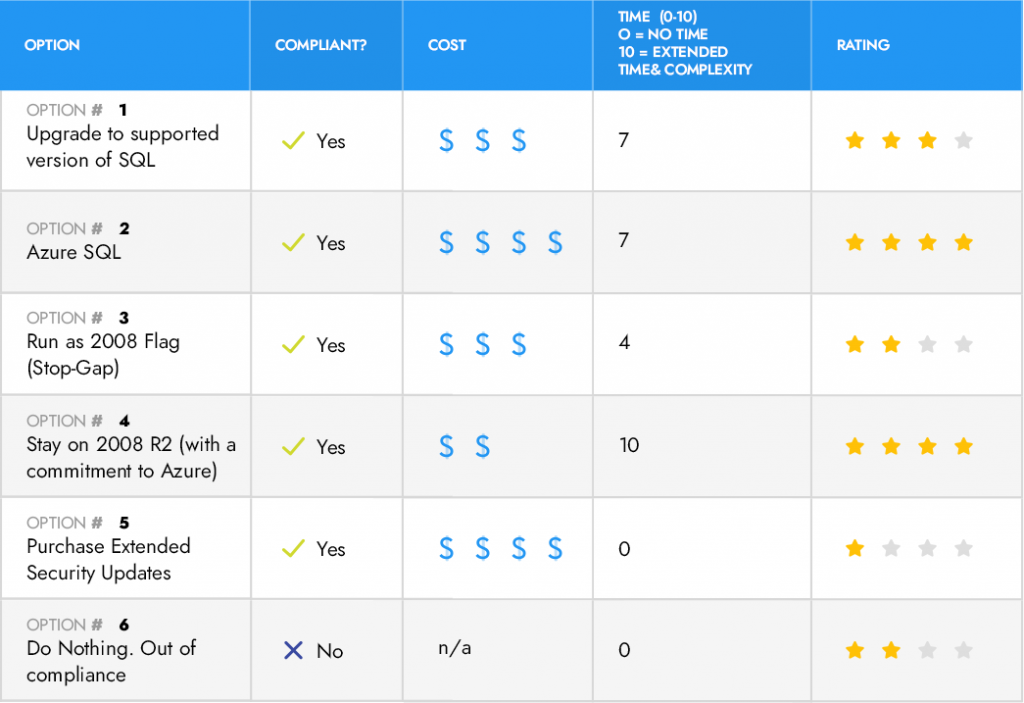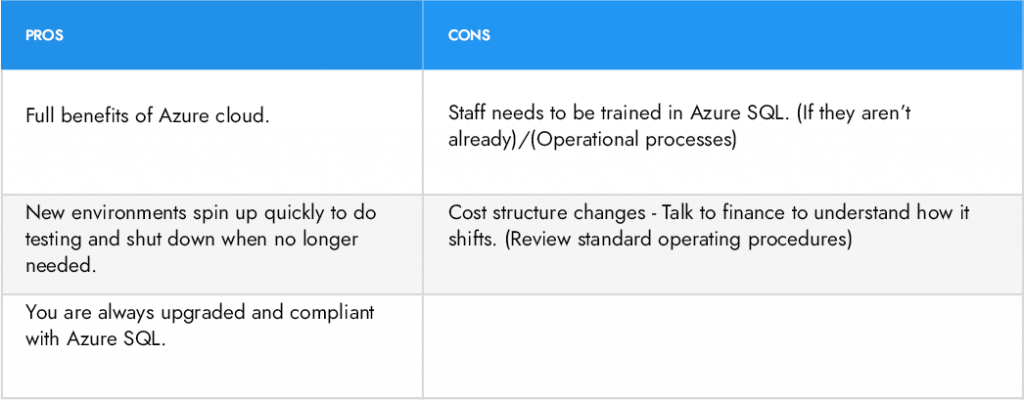



Get new exclusive access to healthcare business reports & breaking news




By: Robbie Abed
SQL Server 2008 and SQL Server 2008 R2 support is ending on July 9, 2019. This is a BIG deal for healthcare organizations whose databases remain on the ageing systems as their regulatory compliance with HIPAA may no longer be met.
Most in the healthcare world can move on with their daily tasks without worrying too much about this issue. However, if you’re an executive of a healthcare organization, this should be at the top of your mind because of the possibility of being out of compliance and getting heavily fined.
Determining if you’re HIPAA compliant is fairly cut-and-dried. If you’re on an unsupported version of SQL Server, then you are not compliant.
If you decide to stay on SQL SERVER 2008 or SQL SERVER 2008 R2, you either have to pay for the extended support through Microsoft, upgrade to a supported version, or show that you’re in the process of migrating to Azure to get free support.
Here are three things every healthcare organization should know:
According to the latest white paper from Prime TSR, a Chicago-based strategic technology modernization company, there are six options.
Of course, one of your options is to do nothing – if you enjoy heavy fines, and out-of-compliance regulatory issues – but If you’re like everyone else and need something to keep you going for the near future, then it’s best to look through these options.
The good news, Prime TSR, also outlined interim options that allow you to move forward to avoid the out-of-compliance issues, and allow you to innovate.


“The clock is ticking for healthcare organizations whose data environments remain on SQL 2008, but thankfully there are options. In most cases, I recommend turning the termination of SQL 2008 support into an opportunity to migrate to the cloud. However, I understand that circumstances may require some healthcare organizations to take different routes” says Eugene Khazin, co-founder and principal of Prime TSR.
One option is to migrate to supported Azure SQL (or managed instance), and a major benefit of making this shift is always being upgraded and compliant. Essentially, you won’t ever have to read an article like this again.


We all know how hard it is to move IT forward in an innovative direction when Healthcare IT teams are constantly worrying about maintaining their current infrastructure. Sometimes all you need is a looming deadline to make the case to move to the cloud and thus always be “up-to-date and compliant.”
With less than 9 months left before end-of-support issue, it’s critical to not only start planning the next steps but actually take action.
We all wish upgrading software was as easy as a click of a button. Unfortunately, since so many healthcare applications rely on SQL SERVER 2008 R2, companies have to be careful in not disrupting critical applications.
However, according to Khazin, there is something positive to take from all of this:
“The good news is that healthcare organizations still have time to make the right decision and not only avoid the fines, but move their IT infrastructure forward. It’s running close to the wire, but once you start evaluating your options, you quickly recognize the options aren’t as dire as you thought they would be. It’s a big reason why we broke it down to 6 options to help healthcare IT and business executives understand the reality of their possible next steps.”
Get the full white paper for more information.